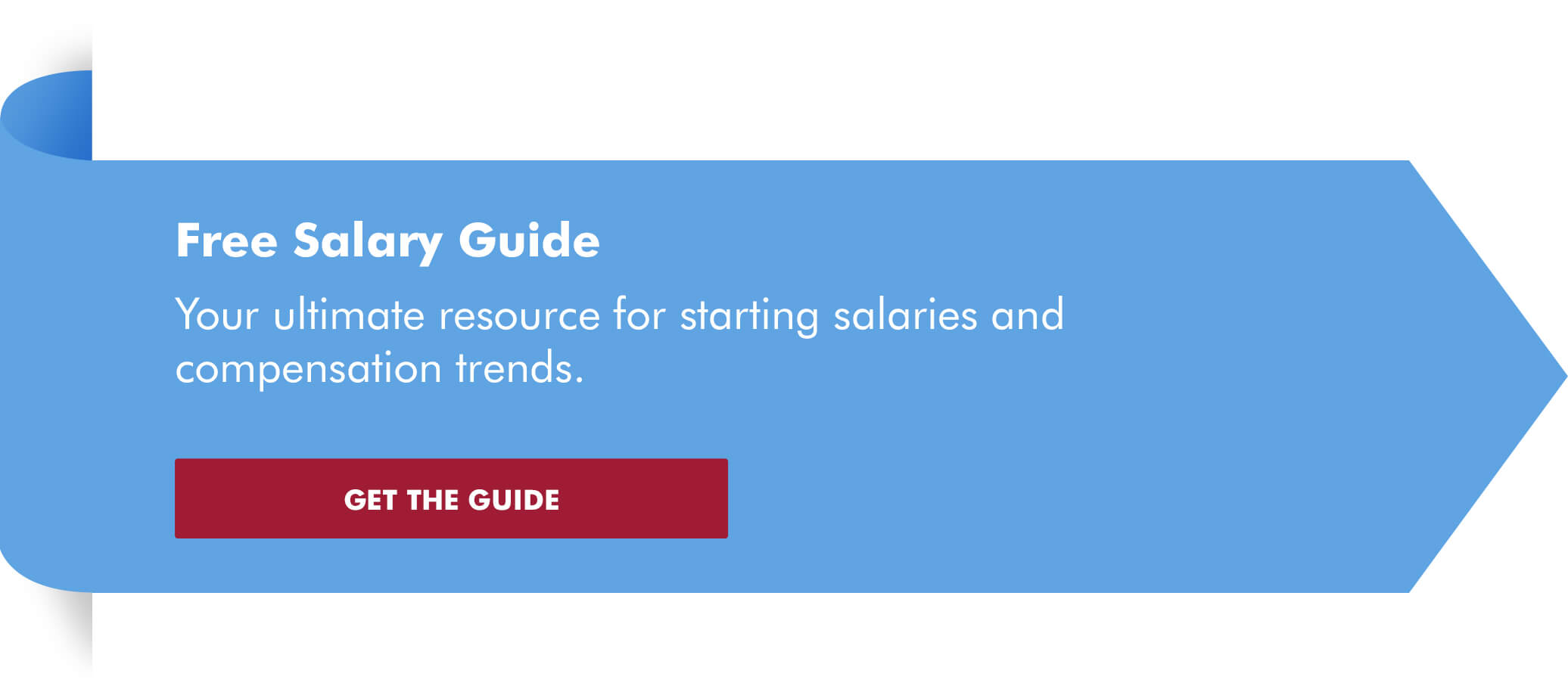After you’ve been working in managerial positions for a while and had success as a leader, it’s natural to start thinking about applying for executive roles. You want to be involved in strategic decisions and help steer the company through challenging times. Maybe you can even see yourself eventually becoming a CEO.
But before you start an executive-level job search, you’ll want to reflect on whether you’re really ready, as a professional, to take on the challenge of an executive role. You’ll also have to prove your capabilities and business acumen in several areas before you can achieve this ambitious career goal.
Following are a few things you’ll want to do as you prepare for an executive-level job search:
Track technology trends
First, if you want to be a company executive, you must understand the technological forces that are changing the nature of work. Robert Half, in a report on the future of work, identified five major technology trends that business leaders will want to track closely, as they are already transforming many workplaces and jobs:
- Automation will reduce and might eventually eliminate busywork, allowing staff to focus on strategic and value-adding tasks.
- Artificial intelligence will help make data-driven decision making a part of everyday work.
- Augmented and virtual reality will create entirely new and engaging customer experiences.
- Cloud computing is already making it easier for companies to work collaboratively and remotely — and scale globally.
- The Internet of Things will enable granular control over enterprise logistics.
Technology has already created some new executive roles, such as the chief data officer. It has also put the chief technology and information officers among the most influential executives, often working closely with the CFO on major strategic decisions.
And, of course, technology is essential for supporting remote teams and enhancing their collaboration and communication. So, you’ll want to keep a close eye on how the COVID-19 crisis and other dynamics are helping to accelerate IT trends like cloud computing and automation.
Grow your professional network
Your professional connections who are seasoned professionals can help you succeed in your executive-level job search, not only by providing you with leads, but also, recommending you for positions. That includes the people in your company who already work at the executive level or who otherwise may have influence on hiring decisions for executive roles.
In fact, many executives welcome the opportunity to help employees advance in their careers. They’re just waiting to be asked. In a Robert Half survey, nearly one-third of executives said the biggest networking blunder for professionals is not reaching out for advice and support.
So, as preparation for your executive-level job search, focus on building a solid network of people who can help you succeed. Ways to do this include:
- Attending professional events and speaking at them when the opportunity arise (note that in the current environment, these events are likely to be online-only)
- Discussing your career goals openly and asking leadership in your organization for advice on how to work your way up to executive roles
- Making the most of professional social networks to connect with executives and other leaders
- Giving back to others in the form of mentorship, advice and support
If you’re already seen as a value-adding member of a leadership team, you’ll likely find that other leaders will be keen to help lift you higher up.
See these tips for effective networking during an executive-level job search.
Share your insights and expertise online
Social media gives you the opportunity to build a personal brand. Use professional platforms to weigh in on conversations, demonstrate your knowledge and keep your peers informed of what you’re working on. A note of caution, though: A poorly executed social media strategy is arguably worse than no social media presence at all. There are a few basic tenets to bear in mind:
- Be consistent. It takes hard work to gain traction on social media. Commit to posting a certain number of times each week.
- Be professional. Use social media to project the qualities you associate with a strong leader: wisdom, insight, collaboration and industry expertise. Above all else, be professional. Also, be positive and courteous — and try to avoid getting drawn into prickly debates.
- Be collaborative. Try to have genuine conversations with people in your industry. Share useful information and amplify voices you respect.
- Be useful. The trick to becoming an authoritative voice is to post useful content. Share insights, statistics and best practices that offer real value to people in your industry. Do your best to tell people things they don’t already know.
Develop a clear, compelling professional story
Hiring decision makers reviewing the resumes of applicants for executive roles will generally want to know two key things about prospective hires: Do they have the skills to deliver short-term value? And do they have the vision to create long-term success?
So, your executive resume should tell a clear story about you, as a professional. And it should help to answer questions such as:
- Who are you? What drives you? What are your values? What makes you stand out from other candidates?
- Who trusts you? Who has given you responsibility in the past? Why did they choose you? How did you meet and surpass their expectations?
- How do you fix problems? What kind of challenges have you faced in the past? How did you find solutions?
- How do you work with others? Collaboration is essential in the modern boardroom. How have you built relationships with executives where you’ve worked?
- What’s your vision? If you assume a leadership role, the future of the company depends on you. Which direction will you take?
Think critically about the story you can tell right now in your career. Is it compelling? Does it sound like you’re ready to aim for executive roles? If not, you may need to expand and strengthen your experience. Working as a consultant could help you to do that.
Consider the consulting path
Managers often hit a ceiling when they apply for executive roles. While they may have very impressive management credentials, they don’t always have the strategic skills or experience to take that next big step up in the organization.
Working as a consultant is one way to get the experience needed to bridge the gap. And it’s a career path that offers many advantages. For example, you can:
- Work in different environments and learn a variety of best practices
- Experience different types of businesses, from blue-chip companies to startups
- Deliver large-scale projects with tangible results
- Work in high-stakes scenarios where you must meet objectives at all costs
- Demonstrate flexibility and adaptability by working with diverse clients
- Gain experience in different management scenarios, such as change management, project management and interim management
Working as a consultant can also expand your exposure to prospective employers — and it can help position you for success in your executive-level job search, when the time is right.
Search our job site now to see what types of finance consulting opportunities are available in your area.








